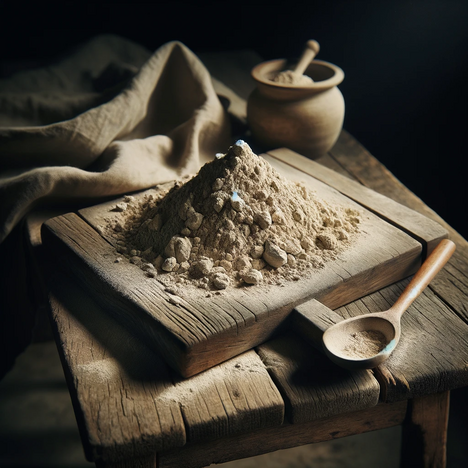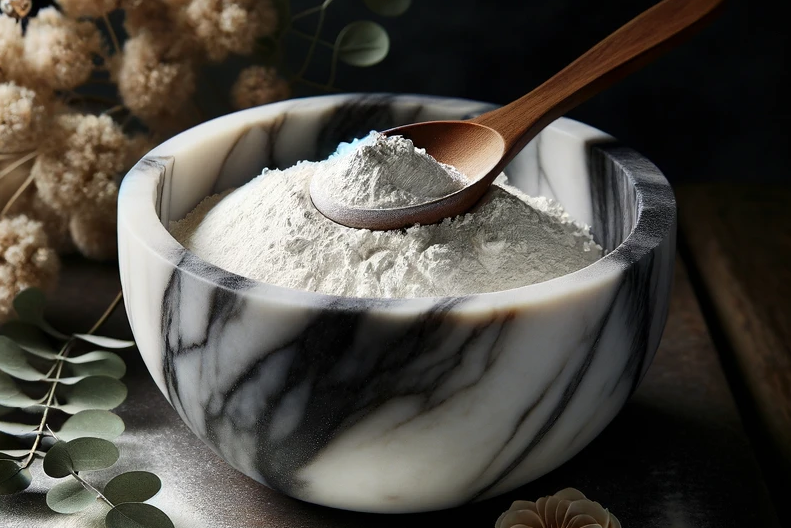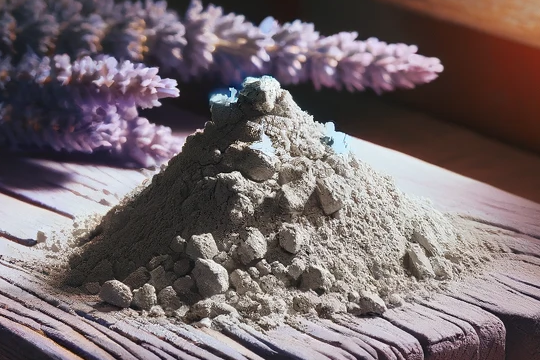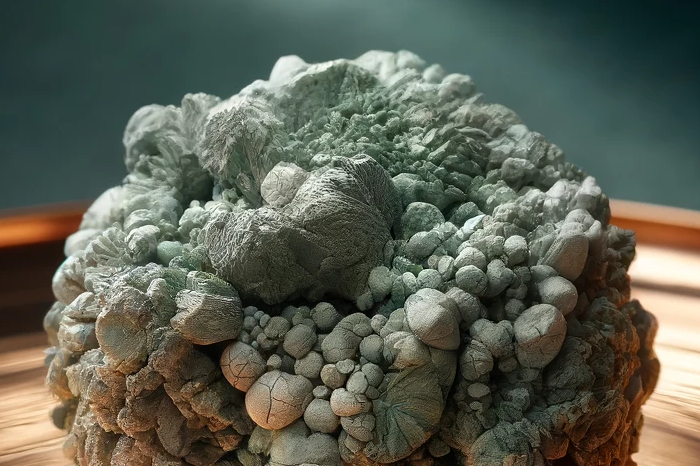Bleaching earth

What is fuller's earth?
Fuller's earth, also known as fuller's earth, is a type of clay consisting mainly of minerals such as montmorillonite. It is used in various industries due to its absorbent properties, for example to purify oils and as a natural detoxifying agent. In pet care, fuller's earth is often advertised as a dietary supplement that can supposedly bind and eliminate toxins in the body.
Benefits of bleaching earth for dogs
Natural detoxification
One of the main benefits attributed to bleaching earth is its ability to bind pollutants and toxins in the digestive tract. For dogs that may have access to contaminated food or harmful substances, bleaching clay could help neutralize these toxins before they can cause harm.
Supporting digestion
Bleaching earth is also said to have a positive effect on digestive health. Its absorbent properties can help bind excess fluid in the intestines, which can be beneficial in cases of diarrhea. It is also said to support the intestinal flora and help regulate the digestive system.
Disadvantages and risks
Lack of scientific evidence
Despite the claimed benefits, there are few scientific studies confirming the safety and effectiveness of fuller's earth as a dietary supplement for dogs. Without solid evidence, it is difficult to assess the potential health benefits.
Possible nutrient retention
A significant risk of using bleaching earth is its ability to bind not only toxins but also important nutrients. This can cause dogs that are regularly given bleaching earth to develop deficiencies in essential vitamins and minerals.
Digestive problems
Although bleaching clay can help with diarrhea, there is a risk of constipation if used excessively. The absorbent properties of the clay can make the stool too solid, which can be uncomfortable or even harmful for your dog.
Recommendations for dog owners
If you are considering introducing bleaching clay into your dog's diet, it is important to do so carefully. Start with very small amounts and monitor your dog's reaction closely. It's also advisable to speak to a vet beforehand to make sure the supplement won't have any negative effects on your dog's health.
Bleaching earth can offer potential benefits for your dog's health in certain circumstances, particularly in terms of detoxification and digestive support. However, the risks and lack of scientific support are not negligible. A considered, informed decision and consultation with a professional is essential before including bleaching earth as a supplement in your dog's diet. When in doubt, your dog's health should always come first.
Properties 9
Are you looking for other ingredients with a specific property?
Just click on them to find more.
If you notice any signs of hypersensitivity or poisoning in your dog, you should see your vet immediately. We are not a substitute for a vet, but we try to be as accurate as possible. Every dog reacts differently and we recommend you get a second opinion or consult your vet if in doubt.
Stay healthy and take good care of your four-legged friend!😊
Similar to Bleaching earth
Kaolin, also known as china clay or white clay, is a naturally occurring white mineral consisting mainly of the mineral kaolinite. It is used in various industries, from ceramic production to...
Bentonite is a fine powder consisting of various clay minerals. The most important are montmorillonite, kaolinite and illite. These minerals have a platelet-like structure that can swell in water...
A natural clay with unique properties Montmorillonite belongs to the group of smectite clay minerals and is characterized by its ability to absorb water and other substances between the clay...
Zeolite is a naturally occurring, microporous mineral with a unique crystalline structure consisting of aluminum, silicon and oxygen. Its special ability to exchange ions and adsorb molecules makes...



